Intro
Discover what to expect during knee replacement recovery time. Learn about the typical recovery timeline, post-surgery rehabilitation process, and tips to minimize complications and ensure a smooth transition to full mobility. Get expert advice on managing pain, regaining strength, and resuming daily activities after knee replacement surgery.
Knee replacement surgery, also known as knee arthroplasty, is a common procedure for individuals suffering from severe knee damage or arthritis. While the surgery itself is a significant step towards regaining mobility and reducing pain, the recovery process is just as crucial. Understanding what to expect during the knee replacement recovery time is essential for a smooth and successful rehabilitation.
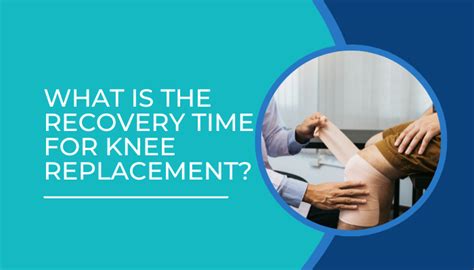
The road to recovery after knee replacement surgery can be challenging, but with the right mindset and proper care, patients can achieve optimal results. In this article, we will delve into the various stages of knee replacement recovery time, what to expect during each phase, and provide valuable tips for a successful rehabilitation.
The First Few Days After Surgery
The initial days following knee replacement surgery are critical in setting the tone for a smooth recovery. During this period, patients typically experience pain, swelling, and limited mobility. It's essential to follow the doctor's instructions and take prescribed pain medication to manage discomfort.
- Hospital stay: Most patients spend 1-3 days in the hospital after surgery, depending on their overall health and the complexity of the procedure.
- Pain management: Pain medication, ice packs, and elevation of the affected leg can help alleviate pain and swelling.
- Mobility: Patients are encouraged to move their legs and ankles to prevent blood clots and promote circulation.
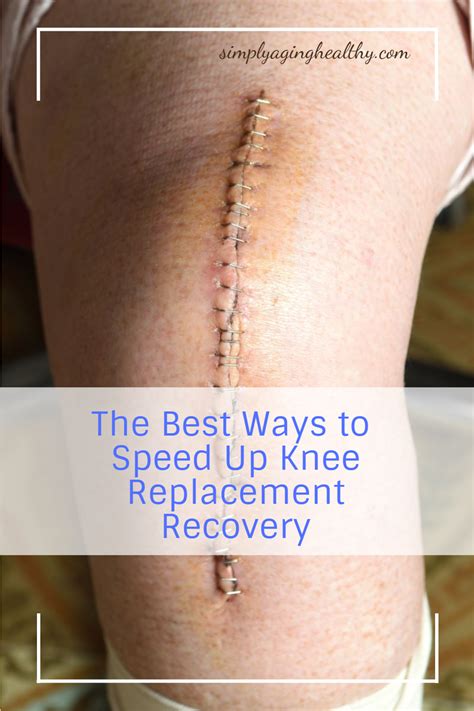
Immediate Post-Surgery Care
Proper care during the first few weeks after surgery is vital for a successful recovery. Patients should:
- Follow a physical therapy program to regain strength and mobility
- Use assistive devices, such as walkers or crutches, to avoid putting weight on the affected leg
- Keep the wound clean and dry to prevent infection
- Take antibiotics as prescribed to prevent infection
The First Few Weeks After Surgery
As the initial pain and swelling subside, patients can start to regain their strength and mobility. During this period, it's essential to:
- Continue with physical therapy to improve range of motion and strength
- Gradually increase weight-bearing activities, such as walking and standing
- Use ice packs and compression bandages to reduce swelling
- Elevate the affected leg to promote circulation
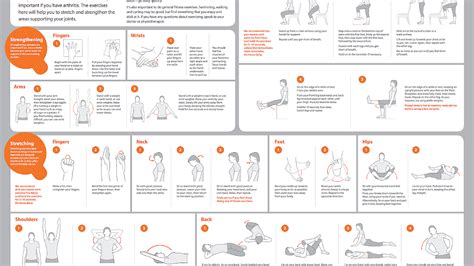
Common Challenges During the First Few Weeks
Patients may experience several challenges during the first few weeks after surgery, including:
- Pain and discomfort
- Swelling and bruising
- Limited mobility and stiffness
- Fatigue and sleep disturbances
The First Few Months After Surgery
As patients progress through the recovery process, they can expect to:
- Continue with physical therapy to improve strength and mobility
- Gradually increase their activity level, including walking and light exercise
- Start to regain their independence, including driving and performing daily activities
- Experience significant improvements in pain and mobility
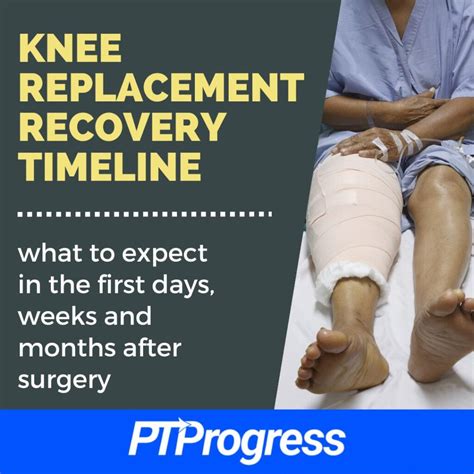
Returning to Normal Activities
Most patients can return to their normal activities within 3-6 months after surgery. However, it's essential to:
- Avoid high-impact activities, such as running or jumping, for at least 6-12 months
- Continue with physical therapy to maintain strength and mobility
- Follow a healthy diet and exercise program to promote overall health and wellness
Factors Affecting Knee Replacement Recovery Time
Several factors can influence knee replacement recovery time, including:
- Age and overall health
- Type of surgery and implant used
- Level of physical activity before surgery
- Presence of underlying medical conditions
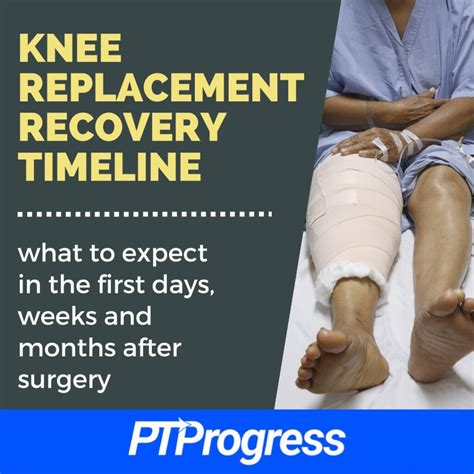
Minimizing Complications and Promoting a Smooth Recovery
To minimize complications and promote a smooth recovery, patients should:
- Follow their doctor's instructions and attend follow-up appointments
- Take prescribed medication and attend physical therapy sessions
- Maintain a healthy diet and exercise program
- Avoid smoking and excessive weight gain
Conclusion
Knee replacement recovery time can be a challenging and unpredictable process. However, by understanding what to expect during each stage of recovery and following a comprehensive rehabilitation program, patients can achieve optimal results and regain their mobility and independence.
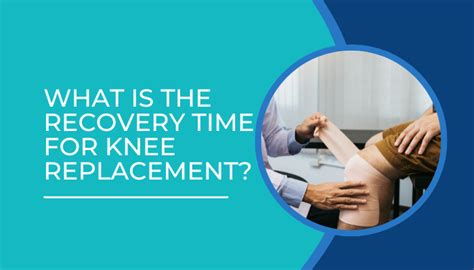
We encourage patients to share their experiences and ask questions in the comments section below. Additionally, we invite healthcare professionals to provide valuable insights and advice on knee replacement recovery time.
How long does knee replacement recovery take?
+Knee replacement recovery time can vary depending on individual factors, but most patients can expect to take 3-6 months to recover.
What are the most common challenges during knee replacement recovery?
+Pain, swelling, limited mobility, and fatigue are common challenges during knee replacement recovery.
How can I promote a smooth knee replacement recovery?
+Following a comprehensive rehabilitation program, maintaining a healthy diet and exercise program, and attending follow-up appointments can promote a smooth knee replacement recovery.
